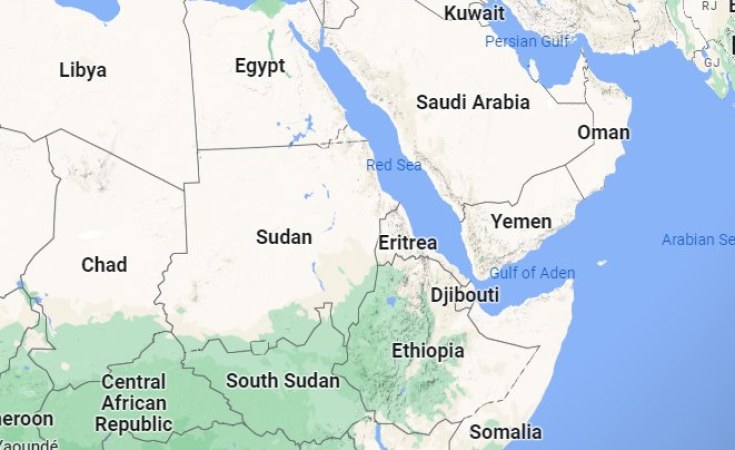Nairobi, Kenya — A massive evacuation of foreigners from Sudan remains underway as the conflict there reaches the 10-day mark. Analysts tell VOA, while foreigners scramble to leave the country, it does not mean they are gone for good, because there is a lot at stake -- including the stability of East and Central Africa if the war in Sudan drags on.
The past couple of days have seen many foreign nationals in Sudan pack up their belongings and leave in a hurry as countries try to pull their citizens out of harm's way.
The troops of Sudanese army chief General Abdel Fattah al-Burhan and Rapid Support Forces commander General Mohammed Hamdan Dagalo, also known as Hemedti, have been engaged in fierce fighting the past 10 days.
Kwaku Nwamah, professor of international politics at American University in Washington, tells VOA that both sides have support from abroad.
"The government has some kind of legitimacy because, after all, it is the official army. On the government side, you have the Egyptians openly supporting Gen. Burhan, the Israeli side also in there," said Nwamah. "On the Hemedti side of the conflict, you have the Saudis, the Emirates, you have Libya where Khalifa Khaftar, who incidentally had good relations with the United States, but he is on that side of the conflict."
Nwamah says the United States, which brokered the latest cease-fire, is concerned not only about Sudan but about the stability of Sudan's neighbor to the west.
"The U.S. is worried about Chad. Chad is a strong American ally. Russia is already in the vicinity in the Central African Republic," said Nwamah. "If Hemedti wins this conflict, the Darfur region can become a starting base for Arab rebels who are challenging the government in Chad."
All countries mentioned have offered to mediate the Sudan crisis. Khaftar's Libyan National Army vehemently denied accusations last week of providing support to either of the two parties and has also offered to mediate the crisis.
Since the conflict started, many cease-fires have come and gone. The latest one, agreed to Monday, seems to be holding although sporadic clashes have been reported.
Murithi Mutiga, is the Africa program director of the International Crisis Group.
"For the moment, the stakes for the two armed forces seem existential," said Mutiga. "All of them are determined to hold Khartoum because it is the center of power, wealth and authority in Sudan. So, both of them, because they distrust each other, they see offers for cease-fires as traps."
Sustained trouble within Sudan will be very problematic, Mutiga pointed out to VOA.
"The suffering internally is really horrific, but the regional implications will be just as serious," said Mutiga. "It is a country that is the crossroads of the Horn of Africa and the Sahel, Middle East and North Africa. It is the third largest country in Africa. It is one that is really surrounded by places with a lot of instability."
After multiple attempts to reach Reem Abbas, a writer and researcher in Khartoum, we were finally able to reach her today. She said they have not had electricity for two days.
"The capital is becoming a ghost city. People are leaving in roughs [droves?], trying to get on buses to go to other states," said Abbas. "Some are trying to cross the border into Ethiopia, South Sudan, and Egypt."
She says she is worried about the looting and the rise of what she called criminal activity.
"Civilians are actually the ones looting some shops and factories. So, war is not only about shelling and shooting and so on," she said. "War is also about humanitarian needs. And if they are not met, you just see rising criminal activity, you see a state of complete chaos."
Abbas says she is worried that is what she and others are going to see in the coming weeks if the war continues.


